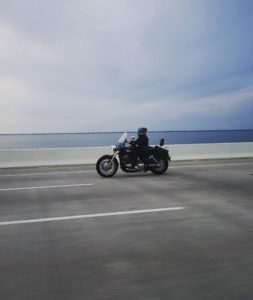Eleventh Circuit Federal Court of Appeals Decision Reviews Florida Car Accident Settlement Offers

Under Florida law, it is possible for an at-fault driver to be liable for damages that exceed the limits of his or her insurance policy. While that option is available, often the at-fault driver is not financially able to provide the amount needed by the injured party, especially in a short amount of time. Recently, we wrote about the need for UM coverage on your own policy, in the event an at-fault driver has no insurance or inadequate coverage to pay for expenses incurred from lost wages and medical bills. A recent published opinion, Kropilak vs. 21st Century Ins. Co., (No. 14-13837), provides insight into alternate ways to pursue payment from the at-fault party’s insurance company when the damages far exceed the policy limits.
In this case, a man was injured while he was on his motorcycle after a woman made an improper left-hand turn in front of him. The motorcyclist’s injuries were severe enough to need a helicopter transport to the hospital. The woman reported the crash to her insurance company, which sent her a letter emphasizing the policy limits. In this letter, the at-fault driver was advised she could be held liable for anything in excess of her limits of $10,000, and the insurance company would not be responsible for this excess liability. The woman was advised she could retain her own counsel. After receiving notice of the injured person’s identity and hospital expenses that were over three times the policy limits, the insurance company mailed a settlement check for the policy limits to the injured man’s attorney. This was not cashed or formally accepted.
Following this event, the insurance company retained counsel to represent the at-fault party’s interests under her policy. As you may know, as part of an insurance contract, the insurance company agrees to indemnify or act on behalf of the insured in the event of an accident. This attorney, once retained, advised the insurance company that the damages suffered by the injured person could reasonably be expected to fall between $150,000 and $300,000. Follow-up was conducted with the injured person’s attorney regarding the check and settlement offer, but no response was provided for over a year. After a year, the injured person’s attorney sent a letter to the at-fault party’s attorney to address the “failure to settle this claim.” The attorney offered to settle with a consent judgment against the woman for $150,000, which would limit the woman’s personal liability and protect the insurance company from a possible “bad faith” claim, which could subject the insurance company to additional, separate liability from the accident.
The letter was sent to adjusters and considered by the at-fault party’s attorney to be within a reasonable range. The insurance company, however, chose not to accept the proposal. The matter went to trial, and a jury gave the injured man a favorable verdict for $173,097.07. The insurance company paid the $10,000 policy limits for the man’s injuries, in addition to $2,500 for property damage. The woman’s personal liability was then left at $160,597.07. The at-fault party, looking at extensive liability, then assigned the injured man any proceeds she may receive from her insurer for any actions arising from this negligence claim. By this assignment, the woman was able to stay any garnishment or collection proceedings against her pending the outcome of a bad-faith claim. The injured and at-fault parties then filed the bad-faith action against the woman’s insurer, claiming that the insurer unreasonably refused to settle under the terms proposed by the injured person’s attorney for $150,000.
The Circuit Court, upon a review of Florida law, disagreed with the injured person and the at-fault party. The court did not believe that the insurer was obligated to settle, even under the obligation to indemnify. The court looked at the insurer’s attempt and follow-up to settle under the policy limits, and it determined that the possibility of a bad-faith action was not enough to require an insurer to settle while considering both the woman’s insurance limits and her additional personal liability. The court affirmed the trial court’s summary judgment in favor of the insurer.
The Florida motorcycle accident attorneys at Weston & Pape have the personal injury experience you need to aggressively pursue damages after a catastrophic motorcycle accident. We know all the legal avenues available that can maximize the monetary relief you and your family receive. For a consultation, call our office at 772-266-5555 or 561-299-3999.
Related Blog Posts:
Woman Injured In Florida Car Accident Allowed To Continue Personal Injury Suit, South Florida Injury Lawyer Blog, November 25, 2015
Florida First District Court of Appeals Affirms Judgment for Costs Imposed Jointly and Severally Against the At-Fault Driver and Insurer, South Florida Injury Lawyer Blog, November 25, 2015
Knowing How a Rejection of Uninsured/Underinsured Auto Insurance Coverage in Florida Affects You and Your Family, South Florida Injury Lawyer Blog, October 6, 2015

 Call Us Today
- It's Free
Call Us Today
- It's Free